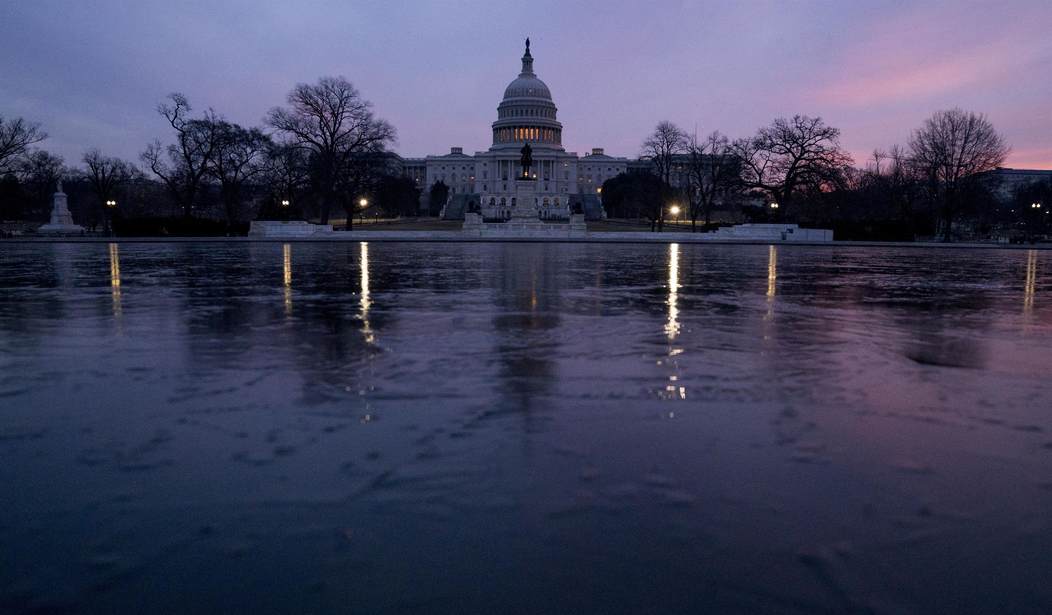One of the hardest lessons for young, idealistic and educated people to learn when they come to Washington -- and some never learn it -- is that nobody is running things. Sure, they know how to hold a press conference or write a law or conduct a study. But no person or group of people has the power to impose their will on society. There are just too many chefs making the soup.
In other words, people have the power to try stuff in the same way generals have the authority to send troops into battle, but as Gen. James Mattis likes to say, "The enemy gets a vote." And in politics and public policy, the enemy isn't merely the opposing party or hostile voters, but life -- that vast realm of existence governed as much by Murphy's Law as Washington's laws. Facts are stubborn things. The world is complicated.
After Barack Obama got his stimulus passed on the promise that there were millions of "shovel-ready jobs," the stimulation never quite materialized as planned, and the shovels tended to stay in the shed. Obama later insisted that the theory behind the stimulus was right, but "the problem is that spending it out takes a long time, because there's really nothing -- there's no such thing as shovel-ready projects."
This is a hard lesson for people who put immense faith in government to do big, important things. The technocratic New Dealers were sure they were smart enough to allocate resources better than the market. To that end, in 1933, when millions of Americans were going hungry, the government slaughtered some 6 million pigs and threw away the meat in an effort to drive up pork prices. Secretary of Agriculture Henry A. Wallace was convinced America was on the verge of creating a new society.
"Only the merest quarter-turn of the heart separates us from a material abundance beyond the fondest dream of anyone present," he told a crowd in Des Moines, Iowa. All we had to do was resist the urge to act like dogs returning "to the vomit of capitalism."
Recommended
Capitalism nauseates because we come into this world with programming for a "Stone Age conception of clan life" as economist Michael Munger puts it. Our brains are wired to expect someone to be in charge. When bad things happen, it must be because someone intended it. We get angry at perceived slights, inconveniences and tragedies, and our anger needs a target.
This wiring was perfectly adapted for a zero-sum world where resources were finite and political and economic transactions were essentially face-to-face and communal. But in a world where the price of a bag of rice from India is influenced by political turmoil in Indonesia and heavy rains in Arkansas, never mind the overproduction of potatoes (a substitute for expensive rice) in Russia or the Netherlands, blaming your local grocer for charging an extra 50 cents is silly. But it's still natural.
When gas prices are "too high," many politicians blame oil companies for "gouging." When prices are low, these same politicians insist that oil companies shouldn't drill, build pipelines or open new refineries. That one result is correlated to the other is irrelevant to the need to aim anger at someone.
The need to blame is a core driver of conspiratorial thinking. When bad things happen, we look for beneficiaries and then reason backwards that they must have been responsible.
MSNBC's Chris Hayes recently floated the idea on Twitter that Obama's failure to goose the economy was a conspiracy. The excuses big business offered for low investment or wage growth were proven wrong by today's economic boom, Hayes argued (with varying degrees of plausibility). But then he added, "... an even less charitable interpretation: they didn't get it wrong at all. They didn't want full employment, they didn't want wage growth and empowered workers and they certainly didn't want that happening under a Democratic president."
The idea that tens of thousands of businesses chose to needlessly keep wages low -- or even go out of business -- lest they lend aid and comfort to Obama is preposterous. Because what is true of politicians is also true of everybody else. No one is really in charge of anything, except for a few things in front of their noses and in their heads, and even then control is often an illusion.
There's nobody behind the curtain pulling the strings. We're all on the stage together, playing our parts.

























Join the conversation as a VIP Member